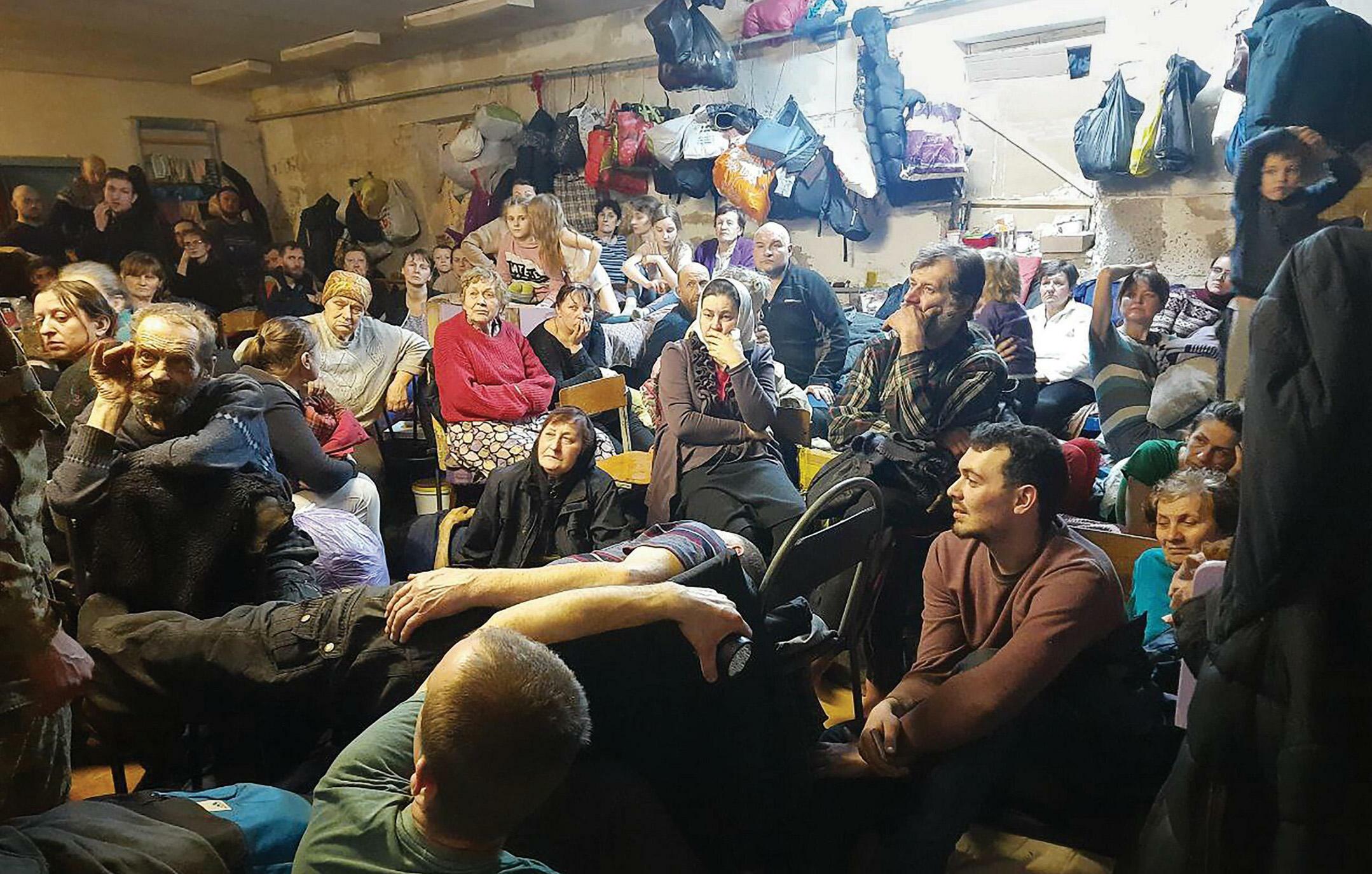INSIDE THE BASEMENT WHERE AN ENTIRE UKRAINIAN VILLAGE WAS HELD CAPTIVE FOR 25 HARROWING NIGHTS

Until they withdrew on March 30, 2022, the Russians kept almost the entire population of Yahidne—more than 360 people, including children and the elderly—in that basement for nearly a month.
It was so cramped, people had to sleep sitting up. Instead of a toilet, there were buckets. Food had to be foraged. There was no ventilation, so the oldest went crazy and died. The Russians did not allow the dead to be buried immediately, and when they finally did, they fired on the funeral.
“People jumped into the pit with the bodies,” says one six months later, recalling the ordeal, at a feast for those who emerged alive. Many had not.
In the intervening months, the survivors repeated their experience to one another, and to investigators working for justice. Their confinement in the basement may serve, one year after Vladimir Putin invaded on Feb. 24, as a microcosm of the sadism that arrived with the invaders. But to more than one survivor, what comes to mind is a concentration camp.
“What day,” one of them asks, “did people start going crazy?”
A year into the invasion, certain places in Ukraine—the Kyiv suburb of Bucha, the southern city of Mariupol—are known for what Russian forces did to the civilians there. To the list add the tiny village of Yahidne, which lay in the north of the country, directly in the path of the advancing army. As soon as the artillery barrages began, the informal village leader, a man named Valeriy Polhui, made a bomb shelter out of his cellar. When Svitlana Baranova and Lilia Bludsha, a travel agent and an engineer at Chernobyl, pulled into the village in a car struck by shrapnel, its windshield shattered, Valeriy took them in too.
Esta historia es de la edición February 07 - March 06, 2023 (Double Issue) de Time.
Comience su prueba gratuita de Magzter GOLD de 7 días para acceder a miles de historias premium seleccionadas y a más de 9,500 revistas y periódicos.
Ya eres suscriptor ? Conectar
Esta historia es de la edición February 07 - March 06, 2023 (Double Issue) de Time.
Comience su prueba gratuita de Magzter GOLD de 7 días para acceder a miles de historias premium seleccionadas y a más de 9,500 revistas y periódicos.
Ya eres suscriptor? Conectar
Documentary revisits ping-pong days of 1971
In 1971 the American table tennis player Glenn Cowan boarded the wrong bus during the world championships in Nagoya, Japan. He missed the U.S. team's bus and got on the next one, only to find himself on the Chinese team’s bus.
5 ways to swim safely this summer
THAT GLISTENING SWIMMING hole might look-and feelrefreshing on a sweltering day.

Scrambling To Survive
FILIPINO FISHING FAMILIES CONFRONT THE WORLD'S CHANGING RELATIONSHIP WITH THE SEA
Health Matters
AS CONGRESS EYES SWEEPING cuts to Medicaid, the health care program for low-income adults that serves about 20% of people living in the U.S., a new study has a sharp conclusion: cuts to Medicaid will cost lives.

Why are ‘100-year storms’ happening so often?
CLIMATE CHANGE IS LEADING NOT ONLY TO DROUGHTS, wildfires, and extreme weather. It's also leading to oxymorons—at least when it comes to what are known as 100-year storms, floods, and other events.

Mike Birbiglia The comedian on his fourth Netflix special The Good Life, the rise of right-wing comics, and being funny vs. being famous
What would you say people like about you?

Q&A With Diva Amo
The marine biologist working to protect our oceans from deep-sea mining

Sebastião Salgado
SEBASTIÃO SALGADO, 81, WHO DIED IN PARIS ON MAY 23, TOOK photographs that were too beautiful to look away from.

Approaching the end, with deliberate steps
STORIES ABOUT THE MEANING OF LIFE TEND to work at cross-purposes with the job of actually living it, particularly when they pedal hard to activate the tear ducts.

Valuing Our Oceans
It's time for a shift in economics
